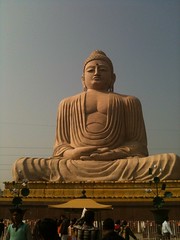| 10741784839 | Aryans | nomads from Europe and Asia who migrated to India and finally settled; vedas from this time suggest beginning of caste system |  | 0 |
| 10741981402 | Sanskrit | the most important language of ancient India |  | 1 |
| 10807673619 | Hinduism | A religion and philosophy developed in ancient India, characterized by a belief in reincarnation and a supreme being who takes many forms |  | 2 |
| 10807728067 | Upanishads | A major book in Hinduism that is often in the form of dialogues that explored the Vedas and the religious issues that they raised. |  | 3 |
| 10807797422 | Aryan Caste System | 1. brahmins (priest "pure" 2.Kshatrias (ruling class, nobles, warriors) 3. Vaishyas (merchants) 4. Shudras (farmers, commoners | 4 | |
| 10808043789 | Siddhartha Gautama | Founder of Buddhism | 5 | |
| 10808106003 | Buddhism | A religion based on the teachings of the Buddha. |  | 6 |
| 10808174666 | Eightfold Path | In Buddhism, the basic rules of behavior and belief leading to an end of suffering | 7 | |
| 10808241466 | Mauryan Empire | (321-185 BCE) This was the first centralized empire of India whose founder was Chandragupta Maurya. |  | 8 |
| 10808299868 | emperor asoka | Emperor of India that constructed stone pillars in the middle of crossroads in cities to show off his accomplishments. | 9 | |
| 10808388279 | Gupta Empire | (320-550 CE) The decentralized empire that emerged after the Mauryan Empire, and whose founder is Chandra Gupta. |  | 10 |
| 10808458070 | Zhou Dynasty | the longest lasting Chinese dynasty, during which the use of iron was introduced. | 11 | |
| 10808518707 | Confucianism | A philosophy that adheres to the teachings of the Chinese philosopher Confucius. It shows the way to ensure a stable government and an orderly society in the present world and stresses a moral code of conduct. |  | 12 |
| 10808595556 | Filial Piety | In Confucian thought, one of the virtues to be cultivated, a love and respect for one's parents and ancestors. |  | 13 |
| 10808655182 | Daoism | Chinese religion that believes the world is always changing and is devoid of absolute morality or meaning. They accept the world as they find it, avoid futile struggles, and deviate as little as possible from 'the way' or 'path' of nature. |  | 14 |
| 10808701814 | Qin Dynasty | (221-207 BCE) The first centralized dynasty of China that used Legalism as its base of belief. |  | 15 |
| 10808755233 | Lao Tzu | Chinese philosopher; taught about Daoism (following the way of nature) and yin/yang | 16 | |
| 10808908016 | Great Wall of China | world's longest man made structure built to keep invaders from the north out of China, started by the Qin Dynasty, expanded by the Han Dynasty, |  | 17 |
| 10808981910 | Han Dynasty | imperial dynasty that ruled China (most of the time) from 206 BC to 221 and expanded its boundaries and developed its bureaucracy |  | 18 |
| 10809053212 | Silk Road | Caravan routes connecting China and the Middle East across Central Asia and Iran. | 19 |
VOCAB 2 AP WORLD HISTORY Flashcards
Primary tabs
Need Help?
We hope your visit has been a productive one. If you're having any problems, or would like to give some feedback, we'd love to hear from you.
For general help, questions, and suggestions, try our dedicated support forums.
If you need to contact the Course-Notes.Org web experience team, please use our contact form.
Need Notes?
While we strive to provide the most comprehensive notes for as many high school textbooks as possible, there are certainly going to be some that we miss. Drop us a note and let us know which textbooks you need. Be sure to include which edition of the textbook you are using! If we see enough demand, we'll do whatever we can to get those notes up on the site for you!

